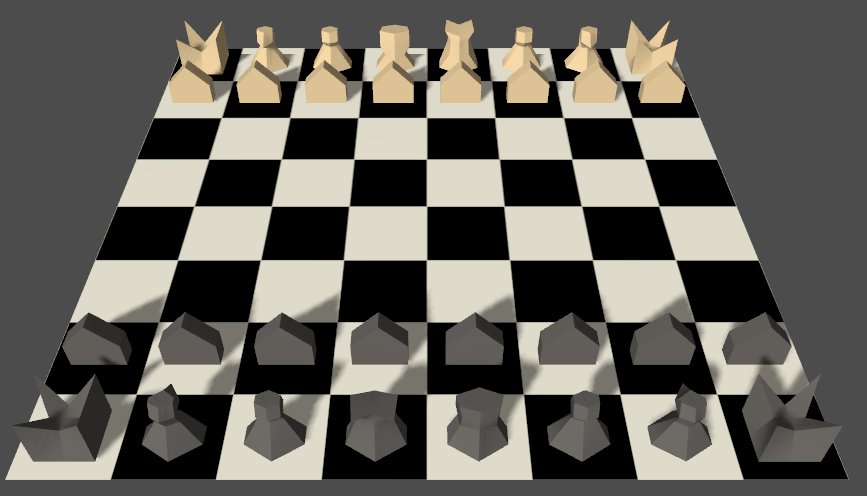Having a few potentially free days I've decided to have a go at Rutin's challenge, making a chess game:
https://www.gamedev.net/blogs/entry/2266806-challenge-1-3d-chess/
I've fancied having a go at this for a few months now as I've never done one before and think the AI will be interesting to try. Anyway I'm using Godot again and have managed to write a basic framework and build some dodgy chess pieces in Blender. This has taken me about 3 hours, so I'm pleased that it is already taking shape.

I will probably have to modify the pieces to make them easier to identify, for instance the knights are too similar to the bishop at the moment.
My plan is to give each piece type a ruleset for how it can move and take other pieces. This can be used to determine legal moves for the human player, and to determine moves for the AI. I'm thinking along the lines of using some kind of heuristic function to determine a score for each team, based on how many pieces are left, and which enemy pieces are threatened, and which of the team's pieces are threatened.
The initial goal for the AI will be to try lots of possible moves and go for the one that increases the AI score the most. This could involve a lookahead for 1, or several moves, maybe trying to predict the enemy countermoves.
I'm sure there are some well established algorithms for all this, but first of all I'm going to try it blind without doing any googling. I find it a lot of fun trying to figure out these things myself, I can always cheat and read some references once I've given it a go.




I cannot wait to see some AI action! I'm almost ready to post my update as well, just so delayed.
I'm almost ready to post my update as well, just so delayed.  I like your chess pieces!
I like your chess pieces! 
On the AI part, I found the simplest approach is just making a score based algorithm for moving that will weed through the possible moves and select the highest value move. Beyond that, I'm sure it would be a major time sink for any more advanced AI.
Best of luck, and I look forward to seeing your entries to follow.